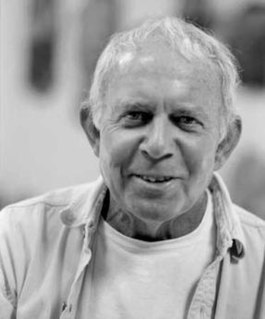A Quote by Frederick Lenz
Taoism shows us how to deal with life and death by realizing everything here is transitory but its substance is eternal.
Quote Topics
Related Quotes
The usual reproach against the essay, that it is fragmentary and random, itself assumes the givenness of totality and suggests that man is in control of this totality. The desire of the essay, though, is not to filter the eternal out of the transitory; it wants, rather, to make the transitory eternal.
Nothing endures except change; nothing is constant except death. Every heartbeat wounds us, and life would be an eternal bleeding to death, were it not for literature. It grants us what nature does not: a golden time that doesn't rust, a springtime that never wilts, cloudless happiness and eternal youth. [my translation]
Clay can be a metaphor for many things. I made it a metaphor for flesh and earth, and these are two kinds of generic givens of life, if you look at it poetically, biblically, the idea of the life of beings, of man, being transitory, the earth abides-ashes to ashes, dust to dust-man returns to earth, grows out of earth like a flower, wilts, goes back to the earth... We are frail, transitory creatures with aspirations of immortality, conscious of our inevitable death, and we have to deal with it somehow.
To begin depriving death of its greatest advantage over us, let us adopt a way clean contrary to that common one; let us deprive death of its strangeness, let us frequent it, let us get used to it; let us have nothing more often in mind than death... We do not know where death awaits us: so let us wait for it everywhere." "To practice death is to practice freedom. A man who has learned how to die has unlearned how to be a slave.
When we raise ourselves through meditation to what unites us with the spirit, we quicken something within us that is eternal and unlimited by birth and death. Once we have experienced this eternal part in us, we can no longer doubt its existence. Meditation is thus the way to knowing and beholding the eternal, indestructible, essential centre of our being.
Since the death instinct exists in the heart of everything that lives, since we suffer from trying to repress it, since everything that lives longs for rest, let us unfasten the ties that bind us to life, let us cultivate our death wish, let us develop it, water it like a plant, let it grow unhindered. Suffering and fear are born from the repression of the death wish.
Of the eternal corporeal substance (which is not producible ex nihilo, nor reducible ad nihilum, but rarefiable, condensable, formable, arrangeable, and "fashionable") the composition is dissolved, the complexion is changed, the figure is modified, the being is altered, the fortune is varied, only the elements remaining what they are in substance, that same principle persevering which was always the one material principle, which is the true substance of things, eternal, ingenerable and incorruptible.
We should know that Allah has created us to live an eternal life with no death, a life of pride and ease with no humiliation, a life of security with no fear, a life of richness with no poverty, a life of joy with no pain, a life of perfection with no flaws. Allah is testing us in this world with a life that will end in death, a life of pride that is accompanied by humiliation and degradation, a life that is tainted by fear, where joy and ease are mixed with sorrow and pain.
































